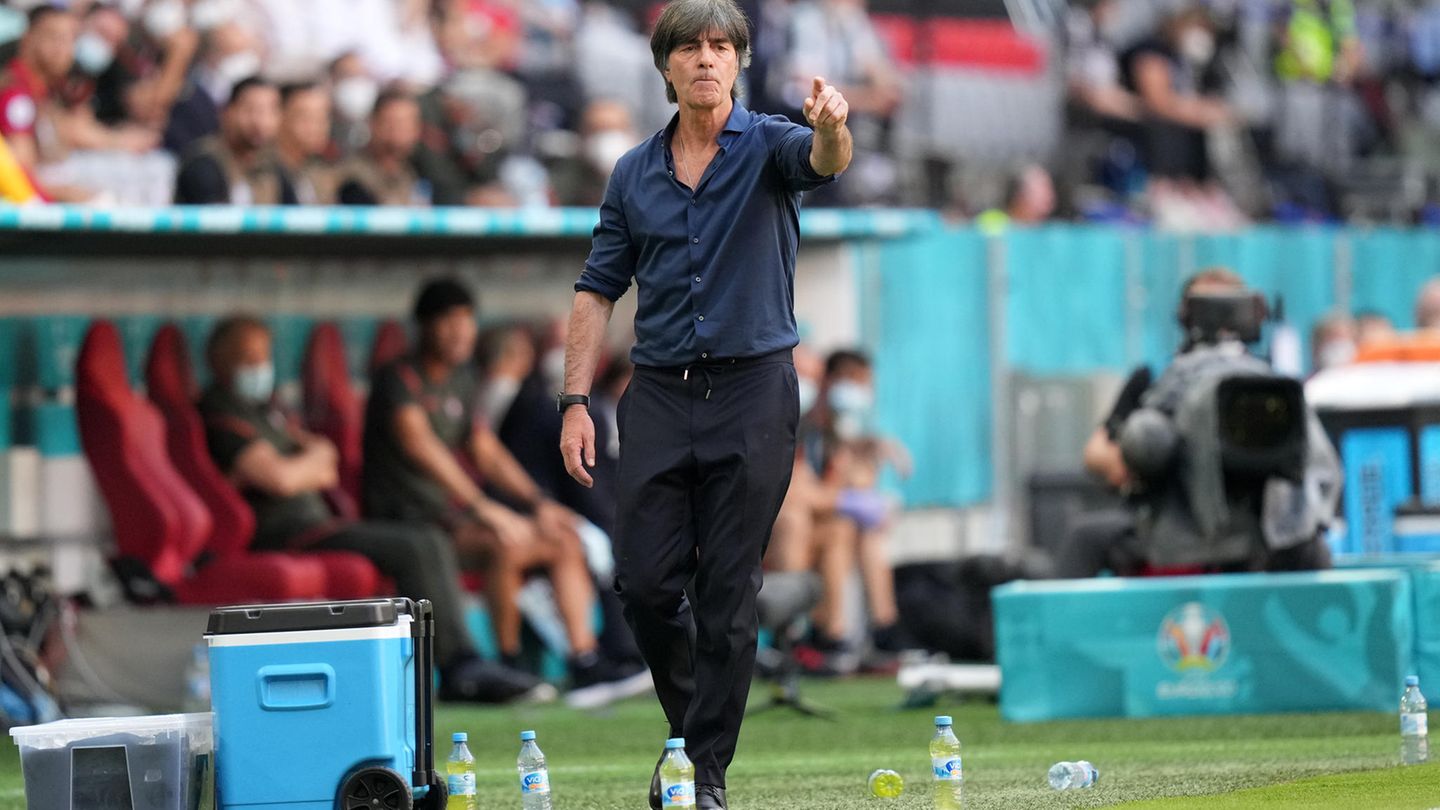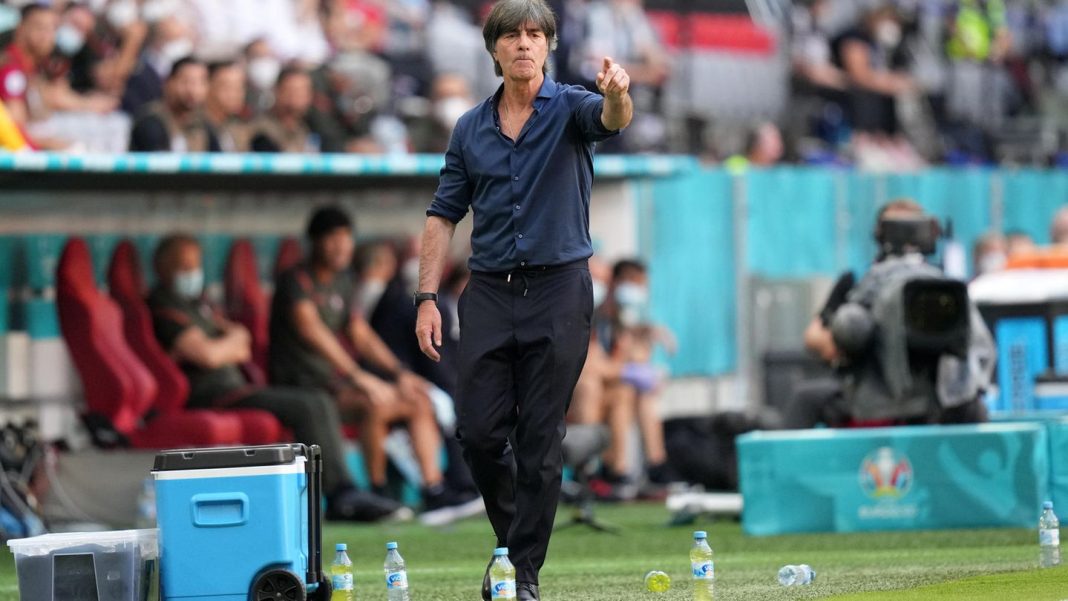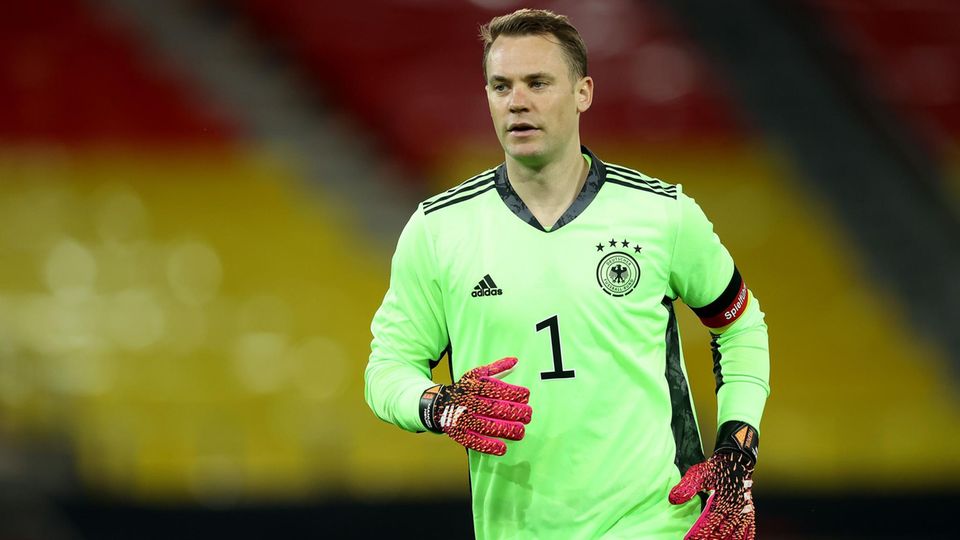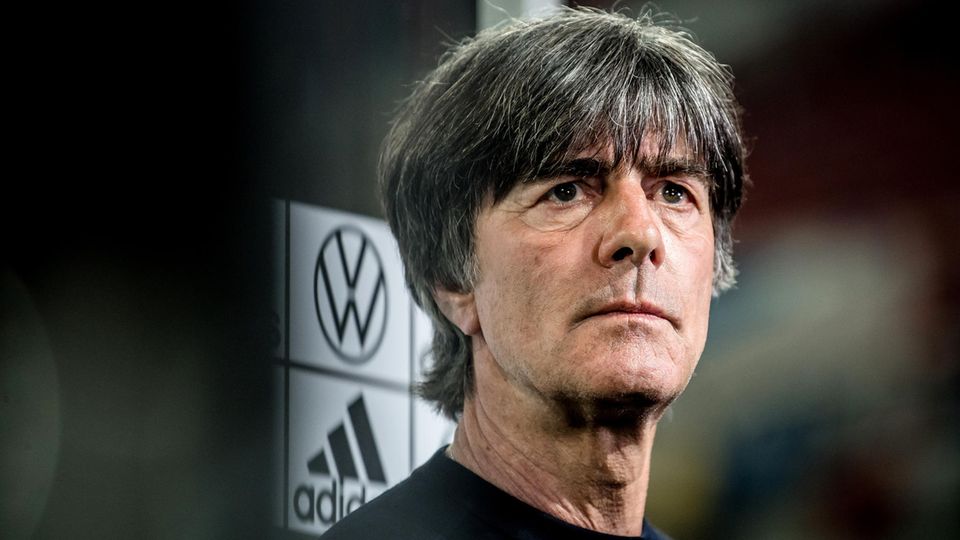Analysis
Victory against Portugal
Finally proved right again: How Löw’s matchplan worked out

Joachim Löw vs Portugal: the France eleven trusted, highly gambled, won a lot
© Matthias Schrader / Getty Images
Two outside backs crank up the German offensive game with a lot of passion in the 4:2 against Portugal – at the same time, the defense shows clear weaknesses as soon as the regulars leave the field. One, at least, showed it to his critics this time: Joachim Löw.
The 4-2 victory of the German national team against Portugal was not only a salvation for those who had toiled on the grass for 90 minutes. After the match, Oliver Bierhoff, the manager of the DFB team, also went to the edge of the pitch and threw kiss hands to the fans in the stands. National coach Joachim Löw – his assistant Marcus Sorg – they all seemed solved this Saturday evening in the Munich Allianz Arena.
Especially lion. With his shirt unbuttoned, he sat in the press conference and said: “Today we have implemented what we had planned. I am very satisfied.”
Joachim Löw’s matchplan worked
For Löw, this was probably the most important insight: That his match plan worked, that the team learned its lessons from the 0-1 defeat against France and especially in the offensive seemed like a substitute. He bet on the same starting eleven, despite some criticism, he gave the team confidence. And it paid back. Two outfield defenders of all kinds cranked up the German attacking game: Joshua Kimmich on the right, Robin Gosens on the left. A sharp challenge from Gosens (35th minute) led to an own goal by Ruben Dias (1:1); mirror-inverted Kimmich flanked tightly into the penalty area, where Raphael Guerreiro scored the next Portuguese own goal (39th minute, 2:1). Gosens later put on for Havertz (51. Minute, 3:1), before he then hit his own head (60. Minute, 4:1).
The defensive is the new offensive, you might think after this game. But that is only half the truth. The spaces on the wing offered themselves for Kimmich and Gosens only because the attacking trio Müller, Havertz and Gnabry kept the Portuguese defense constantly on their toes. Müller in particular was on the road a lot. Although he himself did not come to the conclusion, which did not seem to frustrate him. Müller sprinted and fought his way through Portugal’s penalty area as if he were still an A-youth player who is making his first game with the professionals and wants to draw attention to himself with diligence.
Müller, Gnabry and Havertz hard to capture
Müller, Havertz and Gnabry were also so difficult to capture from the Portuguese defenders because they were constantly rotating-and because they were much better staged by the two sixers Kroos and Gundogan than even in the France game.
Among the findings of the evening, however, is also that the German defense only works reliably in the regular occupation of Ginter, Hummel and Rüdiger. When Joachim Löw replaced the two reservists Süle and Can, the precision was lost. Portugal turned up again and shortened to 2:4; friendly assisted by the German defense. Emre Can in particular seemed unsettled, and Süle limited himself to short safety passes. Very different from Mats Hummels, who had often opened the game with wide balls before.
The substitutions of Hummels and Gundogan were not due to the joy of experimentation of the national coach, but had serious reasons: Hummels complained of pain in the patellar tendon, Gundogan of muscular problems in the calf. No good news for the national coach, who urgently needs his regular staff. The time for regeneration is short – already on Wednesday (21 Clock) Germany plays against Hungary. With a win, the DFB team would certainly be in the round of 16.





